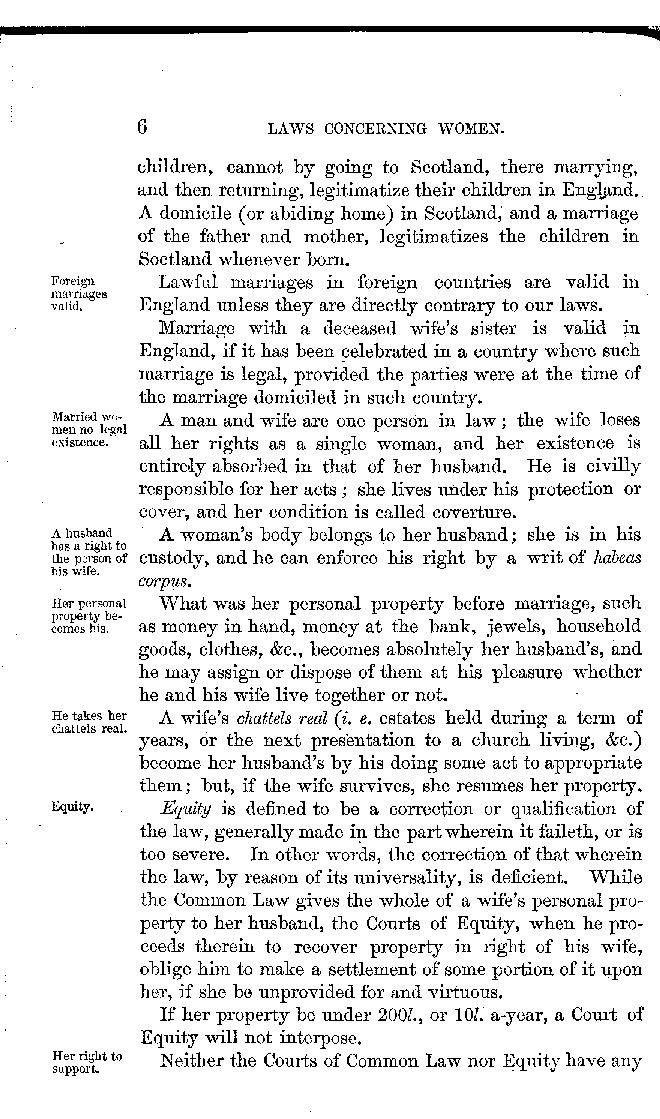children, cannot by going to Scotland, there marrying, and then returning, legitimatize their children in England. A domicile (or abiding home) in Scotland, and a marriage of the father and mother, legitimatizes the children in Scotland whenever born.
Foreign marriages valid.Lawful marriages in foreign countries are valid in England unless they are directly contrary to our laws.
Marriage with a deceased wife's sister is valid in England, if it has been celebrated in a country where such marriage is legal, provided the parties were at the time of the marriage domiciled in such country.
Married women no legal existenceA man and wife are one person in law; the wife loses all her rights as a single woman, and her existence is entirely absorbed in that of her husband. He is civilly responsible for her acts; she lives under his protection or cover, and her condition is called coverture.
A husband has a right to the person of his wife.A woman's body belongs to her husband; she is in his custody, and he can enforce his right by a writ of habeas corpus.
Her personal property become his.What was her personal property before marriage, such as money in hand, money at the bank, jewels, household goods, clothes, &c, becomes absolutely her husband's,and he may assign or dispose of them at his pleasure whether he and his wife live together or not.
He takes her chattels real.A wife's chattels real (i.e. estates held during a term of years, or the next presentation to a church living, &c.) become her husband's by his doing some act to appropriate them; but, if the wife survives, she resumes her property.
Equity.Equity is defined to be a correction or qualification of the law, generally made in the part wherein it faileth, or is too severe. In other words, the correction of that wherein the law, by reason of its universality, is deficient. While the Common Law gives the whole of a wife's personal property to her husband, the Courts of Equity, when he proceeds therein to recover property in right of his wife, oblige him to make a settlement of some portion of it upon her, if she be unprovided for and virtuous.
If her property be under 200l., or 10l. a-year, a Court of Equity will not interpose.
Her right to support.Neither the Courts of Common Law nor Equity have any